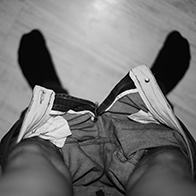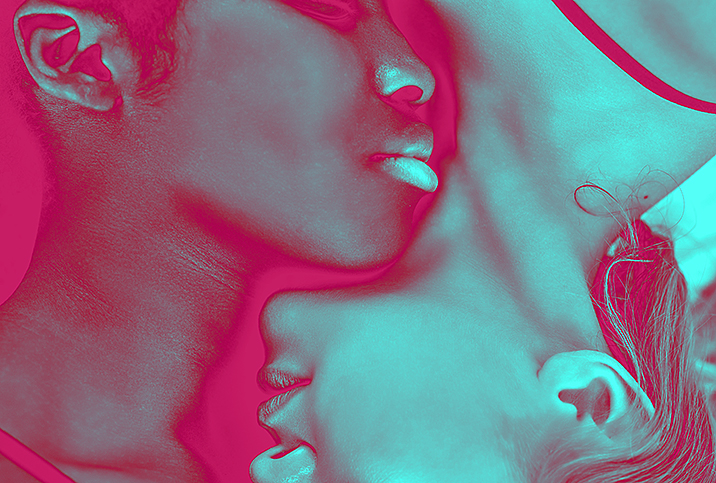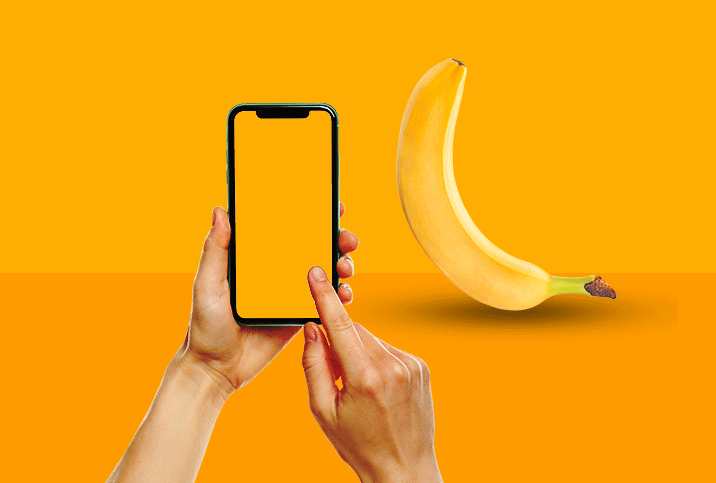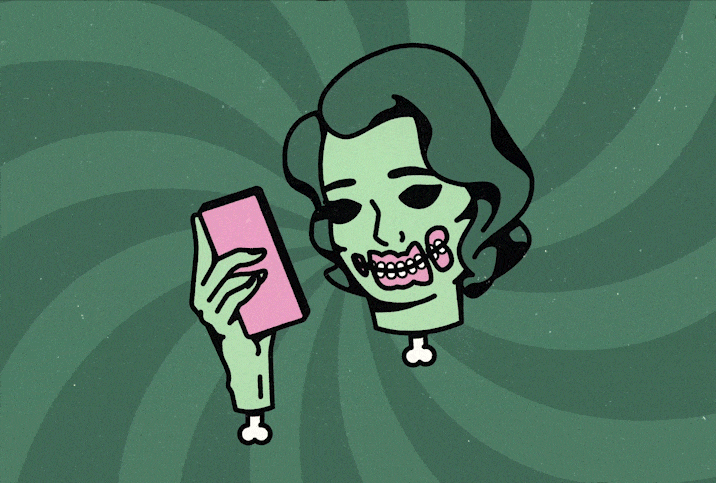Escaping Pickup Artistry

Milo, now 28, was 19 years old when his college roommate introduced him to a YouTube channel called Simple Pickup. In a Discord chat, he said this was his first encounter with the so-called "seduction community" and its members: the pickup artists.
For the uninitiated, pickup artists are people (almost exclusively men) who make a lifestyle out of seducing as many sexual partners as possible. Some make their living from it—these are the pickup "gurus," instructors who claim to have crafted a science out of seduction and sell their methods in courses, seminars, boot camps and books.
At this point in his life, Milo said, he lacked social skills but wanted to learn how to talk to girls. He was drawn in by the three confident men who ran the channel, pulling phone number after phone number from the beautiful women onscreen.
"I was fascinated by how those guys dared to approach attractive women," Milo wrote. "I wanted to become like them one day."
Four years later, Milo moved to a small tourist town, where trying to pick up women became part of his daily routine. Looking back, he talks about those years of his life with bitter regret.
"I was hurting other people and hurting myself in the process," he writes of that time period. "That's something that can't be repaired, and I'll have to live with the feeling of shame and the consequences of my actions for the rest of my life."
A brief history of the modern pickup artist
For the sake of brevity, the story of today's seduction community begins when the pickup artists went online. Many of the most familiar names in modern PUA emerged from forums of the early internet—like alt.seduction.fast, SoSuave and Mystery's Lounge—according to an article diving into the history from sex coach Sarah Martin.
In a Zoom call, Martin called herself "the anti-PUA," and said her job "helps horny people get laid ethically." She was inspired to write her master's thesis on pickup artists after the majority of her clients—mostly men in STEM careers—kept bringing up PUA in their sessions.
On the fledgling internet, PUA crystallized into an international community, where users swapped tips, argued over technique and described their failures and successes in "field reports."
Music journalist Neil Strauss, a frequent poster on Mystery's Lounge in the early aughts, released his book, "The Game: Penetrating the Secret Society of Pickup Artists," in 2005. The exposé into the seduction community sold more than 2.5 million copies, catapulting the once-fringe group—and many of its leading figures—into the mainstream. Erik von Markovik (aka Mystery), who plays a prominent role in the book, would get his own VH1 reality show two years later, "The Pickup Artist."
"The Game" and "The Pickup Artist" also introduced the broader public to the techniques of PUA, best illustrated through their unique vocabulary. For instance, "sarging" is going out to pick up women, "negs" are subtle put-downs meant to get women to vie for your approval and "oneitis" is becoming overly invested in a single woman. Women are "targets," and pickup artistry is "game."
Life inside the seduction community
"The Game" took a while to reach his home country, Josh said, so he wasn't introduced to PUA until 2010. As a self-described loner about to head off to college, he devoured the 452-page book in two days.
"I guess what appealed to me was that I sorta always had an inferiority complex regarding women and such," he wrote over Discord. "That book felt as if it held the answer to all my problems in life."
Josh, another ex-PUA follower, plunged headfirst into pickup culture online and off. By his account, he approached more than 1,000 women over the next two years, as well as trying to sleep with every "slightly good-looking" girl in his social orbit. He would eventually become an admin of his national pickup artistry forum and organized the first PUA conventions in his country.
Gurus convinced Josh that to be attractive to women, he needed to act like an 'alpha,' a domineering male figure at the top of the masculine hierarchy.
Reflecting on his years in PUA, Josh wrote paragraphs packed with mocking vitriol and expletives, mostly directed toward the gurus he once idolized. PUA is "all bullshit and empty promises," and Mystery, who his friends brought into the country for the first time, is a "charlatan" and a "douche."
A lot of his anger is directed at the person he used to be—or rather, the persona he took on during his PUA days. The gurus Josh studied convinced him that to be attractive to women, he needed to act like an "alpha," a domineering male figure at the top of the masculine hierarchy.
"I wanted to be perceived as some super cool, approachable/sociable guy…but also display enough of a strong, 'don't f*ck with me' type of aura to make it look like I'm an intimidating macho [guy] or something," he wrote. "It was what the PUA gurus said chicks liked, so I would just act that way."
The PUA philosophy
Many pickup artists subscribe to the idea of hypergamy—a natural state of sexual inequality, where men at the top of the masculine hierarchy enjoy the majority of available women, while those at the bottom get few to none.
To PUAs, sex is intimately interlocked with social status. The conquest of women is a self-perpetuating cycle: The more sexual partners you have, the more alpha you are; the more alpha you are, the more women will want to have sex with you.
Chris, another ex-PUA follower, said he got into pickup artistry in high school, hoping to attract any girl at all. Though skeptical of PUA philosophy, he became convinced he needed to approach as many women as possible to meet this goal.
Throughout his pickup years in high school, nearly every place Chris went offered an arena to hone his PUA skills. He said he would abandon his friends at the mall to run ("literally run!") from girl to girl in order to hit on them.
Chris—who describes himself as a "bit of an introvert"—never felt comfortable with this version of himself, but nonetheless felt like a failure if he wasn't constantly approaching women.
"The original problem was that you can't get one girl," Chris said. "[Gurus] then, over the process, tell you you need to get multiple girls in order to get that one girl, and if you get that one girl, you're overly attached."
What gurus were selling was a toxic ideology, one that dehumanizes women and the men themselves.
Many former gurus from the pickup artist community deny accusations of sexism. Kong Pham, formerly of Simple Pickup, for example, argues his channel focused on building men's confidence, rather than harassing and manipulating women.
However, within the broader online pickup community, the price of admission is undeniably misogyny.
As Josh explained: "The basic idea PUAs learn is that all women are somehow manipulative and emotional by nature, and it's in your best interest to manipulate them back and use their emotionality to subdue them into doing what you want."
Accepting hypergamy and the duplicitous nature of women is sometimes called "taking the red pill" in PUA and other male-dominated, reactionary online spaces. (Somewhat confusingly, there is a related but distinct community that identifies as "Red Pillers," who incorporate PUA ideology into a broader masculine lifestyle brand that includes fitness and self-help elements.)
Thus, many young men who turned to the internet to learn how to talk to women ended up getting exposed to some pretty dark ideas about sex, dating and gender. This was the case for Milo and Josh (Chris maintains he remained skeptical).
The fallout of PUA
"I saw women as inferior beings," Milo wrote. "I became convinced that women and society were to blame for the lack of success in my life and the lives of other men."
Milo's contempt toward women began to affect his personal relationships outside of dating. He cut off contact with friends who bought into ideas he considered naive and feminist. He skipped his brother's wedding, convinced marriage was a sham meant to eventually strip men of half their possessions.
Josh, for his part, calls buying into PUA the "probably worst mistake of my life" and rattled off his own list of miseries that his PUA years brought upon him: "Epic social humiliation of repeated rejection, no social circle because of the dumb behavior [I] used to display, not being able to respect women or experience intimacy [and] having my thought[s] alienated due to being heavily indoctrinated in the whole thing."
Josh, Chris and Milo are all subscribers of r/exredpill, a Reddit community that offers support to men escaping PUA and related ideologies. The subreddit has the air of an ongoing recovery meeting, with users confessing regrets, trading advice and helping each other detox from a poisonous belief system.
Josh, who is a moderator on r/exredpill, said the subreddit emerged to fill a need. After years embroiled in the toxic culture of PUA and related communities, men come out with deep psychological scars—often as lonely as they went in, if not more so.
There aren't many real-world mental health resources for men looking to recover from toxic internet cultures, Milo said. He was voluntarily institutionalized in 2018, but said the mental health services he's encountered haven't been any help with this specific problem.
"The consequences of PUA and Red Pill ideology aren't openly discussed outside a few small forums," he said. "Even most sociologists and mental health professionals aren't familiar with that movement. Nobody talks about it."
The language of cults (indoctrination, brainwashing, and so on) is common on r/exredpill. Like cult leaders, the PUA gurus are charismatic figures who target followers at a vulnerable point in their lives—when they are young, impressionable and isolated—and promise them a road out of their solitude.
Many of the men lured in by PUA gurus missed out on crucial social development at a young age, Martin said, often because of bullying, isolation or neurodivergence. For a long time, pickup artists were some of the only people online offering to teach men these missing social skills.
"There's nothing wrong with wanting help or wanting to learn skills that you never gained," she said. "And the thing is the PUA are right there, and for the longest time, they were some of the only people serving that need—men could show up and not be ridiculed."
But what gurus were selling was a toxic ideology, one that dehumanizes women and the men themselves. PUA and broader manosphere ideology teaches men they are inherently worthless, Martin said, only gaining value through money, their appearance or sex.
Martin argues PUA is an ugly manifestation of broader social problems, such as a lack of sex-positive education or societal taboos that discourage men from asking for help. Keeping vulnerable young men away from grifter gurus or misogynistic online communities will require changing the way our culture thinks about sex and manhood in general.
"Here's the thing: Sex is this wonderful connective thing that we can do with each other," Martin said. "And we can choose to have it be really life-affirming, and delightful….And I don't know, I think that there's a huge potential to change the entire world inside of that."




















